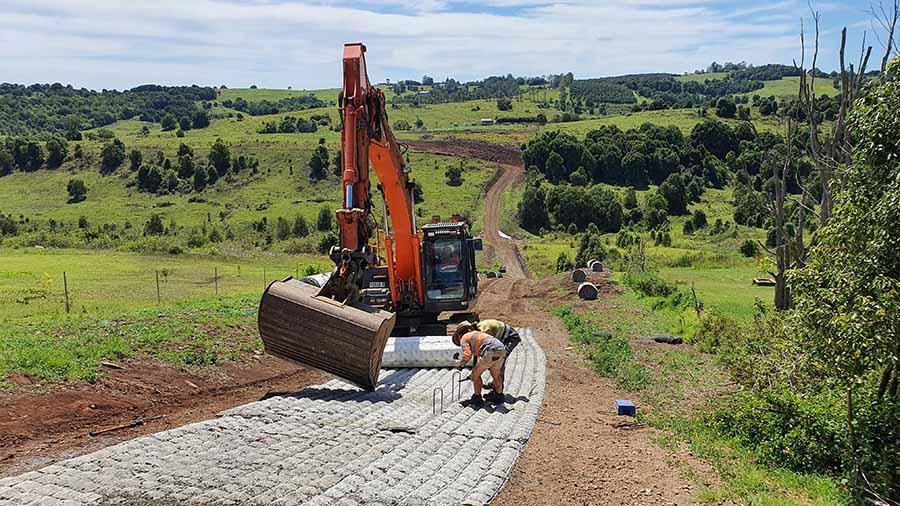Constructing a durable and functional driveway is a crucial aspect of rural property development. A well-designed driveway not only enhances accessibility but also adds value and convenience to your rural property. This comprehensive guide will walk you through the essential considerations and best practices for rural driveway construction, ensuring a smooth and successful project.
Assessing the Site:
Before commencing any construction, thoroughly assess the site where the driveway will be installed. Consider factors such as terrain, soil composition, drainage, and existing vegetation. Evaluate the slope and make necessary adjustments to ensure proper water runoff and prevent erosion issues.
Planning and Design:
Create a detailed plan for your rural driveway. Based on your individual requirements, determine the ideal width, length, and layout for the driveway. Consider factors like vehicle traffic, parking space, and future expansion. Consulting with professionals or experienced contractors can help ensure an optimal design that suits your requirements.
Selecting the Driveway Material:
Choosing the appropriate driveway material is crucial for durability and functionality. Gravel, asphalt, concrete, and crushed stone are commonly used options for rural driveways. Evaluate factors such as cost, maintenance requirements, aesthetic appeal, and climate conditions to make an informed decision.
Preparing the Subgrade:
Proper preparation of the subgrade is vital for long-lasting driveways. Clear the area of vegetation, rocks, and debris. Excavate the soil to the appropriate depth, considering factors such as frost depth and drainage requirements. Compact the subgrade thoroughly to create a stable foundation.
Installing Base and Sub-base Layers:
For gravel driveways, establish a solid base and sub-base layers. Apply geotextile fabric to inhibit weed growth and improve stability. Add a layer of crushed stone or gravel, compacting each layer to create a firm and level surface.
Asphalt or Concrete Installation:
If opting for an asphalt or concrete driveway, hire professional contractors experienced in the respective installation process. They will handle tasks such as grading, excavation, and compaction to ensure proper sub-base preparation. The asphalt or concrete will then be laid and finished to provide a smooth and durable driving surface.
Proper Drainage Solutions:
Efficient drainage is critical to prevent water accumulation and damage to the driveway. Install culverts or ditches to redirect water away from the driveway. Consider adding gutters, downspouts, or French drains to manage runoff from adjacent areas. Proper grading and sloping of the driveway surface will also aid in effective water drainage.
Courtesy Of Yak Mat, a crane mats company
Maintenance and Upkeep:
Regular maintenance is essential to preserve the quality and longevity of your rural driveway. Perform routine inspections, promptly addressing any cracks, potholes, or drainage issues. Seal asphalt driveways periodically to protect against weathering and deterioration. Maintain gravel driveways by replenishing gravel and regrading as needed.
Conclusion:
Constructing a well-designed and properly executed rural driveway enhances accessibility and adds value to your rural property. By carefully assessing the site, planning the design, selecting suitable materials, and following proper construction techniques, you can ensure a durable and functional driveway that stands the test of time. Regular maintenance and upkeep will further prolong its lifespan, providing years of hassle-free usage and convenience.

